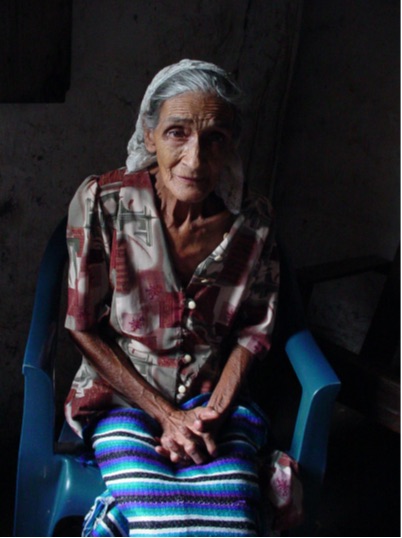It was a beautiful summer morning in Honduras a few years back, and on this glorious day I found myself in a small village about 4 miles east of Copán Ruinas, Honduras. I was on a fact finding mission to look into working with a local school through our school supply program, a project that I started back in 1996 when I first arrived in Honduras.
Since our 4X4 vehicle was broken down that day, I was on horseback. When I arrived at the school I decided to tie my horse to a tree in front of the home of an old lady. I had seen her before but never had the chance to talk to her. Since we were waiting for the teacher to arrive I took the time to walk over and introduce myself.
As we talked I discovered that she had lived in the village all of her life and that she was a widow and had numerous children now grown, plus a herd of grandchildren. I asked her about her life, and she told a tale of a happy but difficult life, filled with hard work, and harder times. I told her that I was from the United States and she just stared at me with a blank look in her eyes, before she sighed and smiled. I then told her that I lived and worked in Copán Ruinas just a few miles away. Her face lit up as she told me that she had never visited Copán but she had heard of it.
As she talked I noticed that she did not make much reference to times, just events. I finally got comfortable enough to ask her how old she was. For a moment I thought that she did not understand the question, so I rephrased it by asking her, “When were you born?”
She smiled again, and replied, “In the spring.” Now it was my turn to smile. Suddenly, she caught on to what I was talking about, and she told me that she did not know how old she was because she did not know the month, day, or the year in which she was born.
She explained to me that in the village where she grew up, there were no schools, no calendars, no newspapers, and no clocks. She did not know her numbers, or how to read and write. I then asked her if she felt old, and she again replied, “How would I know if I am old or not, since I don’t know how many years it takes to become an old person?”
I then asked her if she knew how many days were in a year, and again she did not have a clue.
She then asked me how old was I, and when I told her, she just laughed, and said that for all she knew she was younger than me, and how could I prove otherwise?
That day I learned a lesson from an older, or perhaps younger person, and that was the fact that old age is really not a condition, or a state of being, or even a state of mind. If a person truly lives outside of time then time does not exist.
